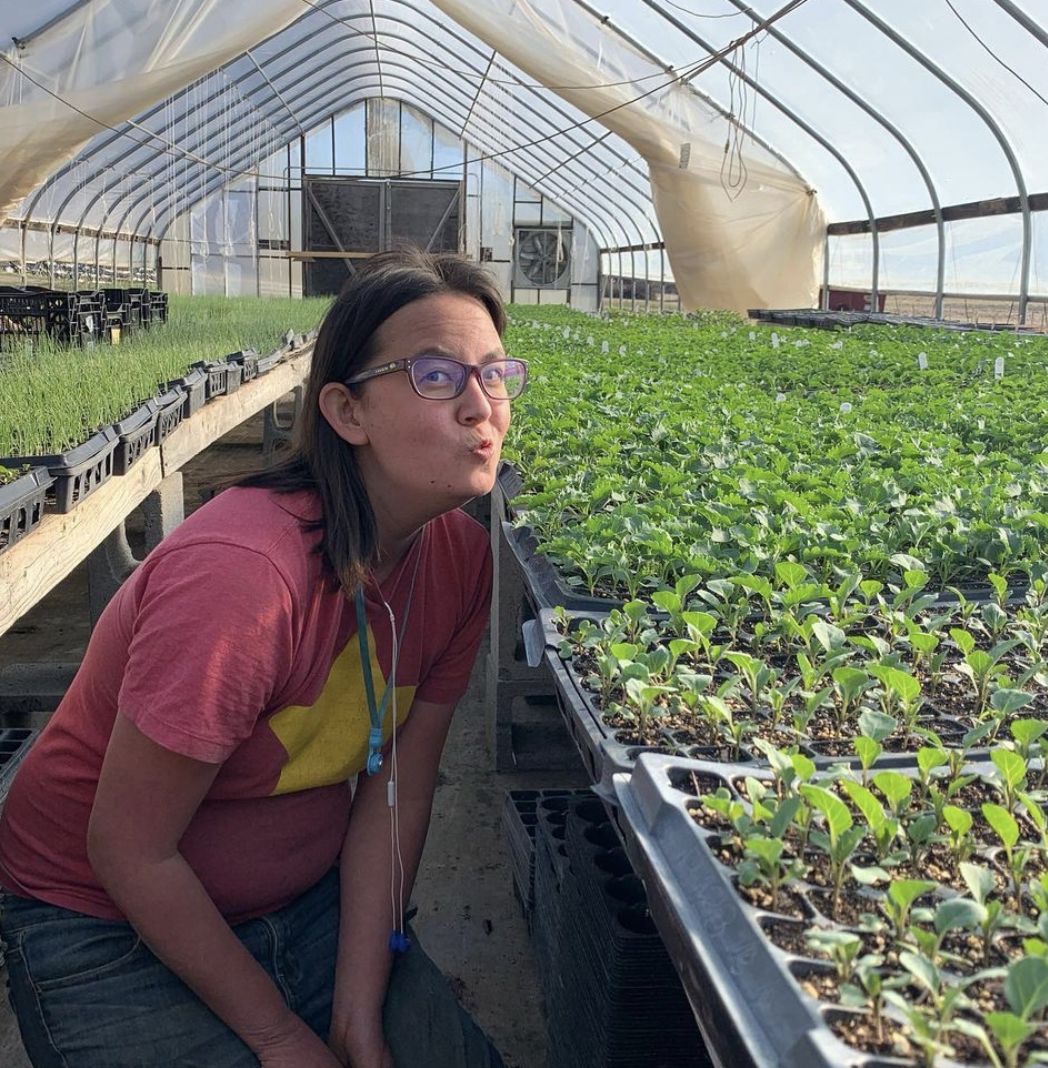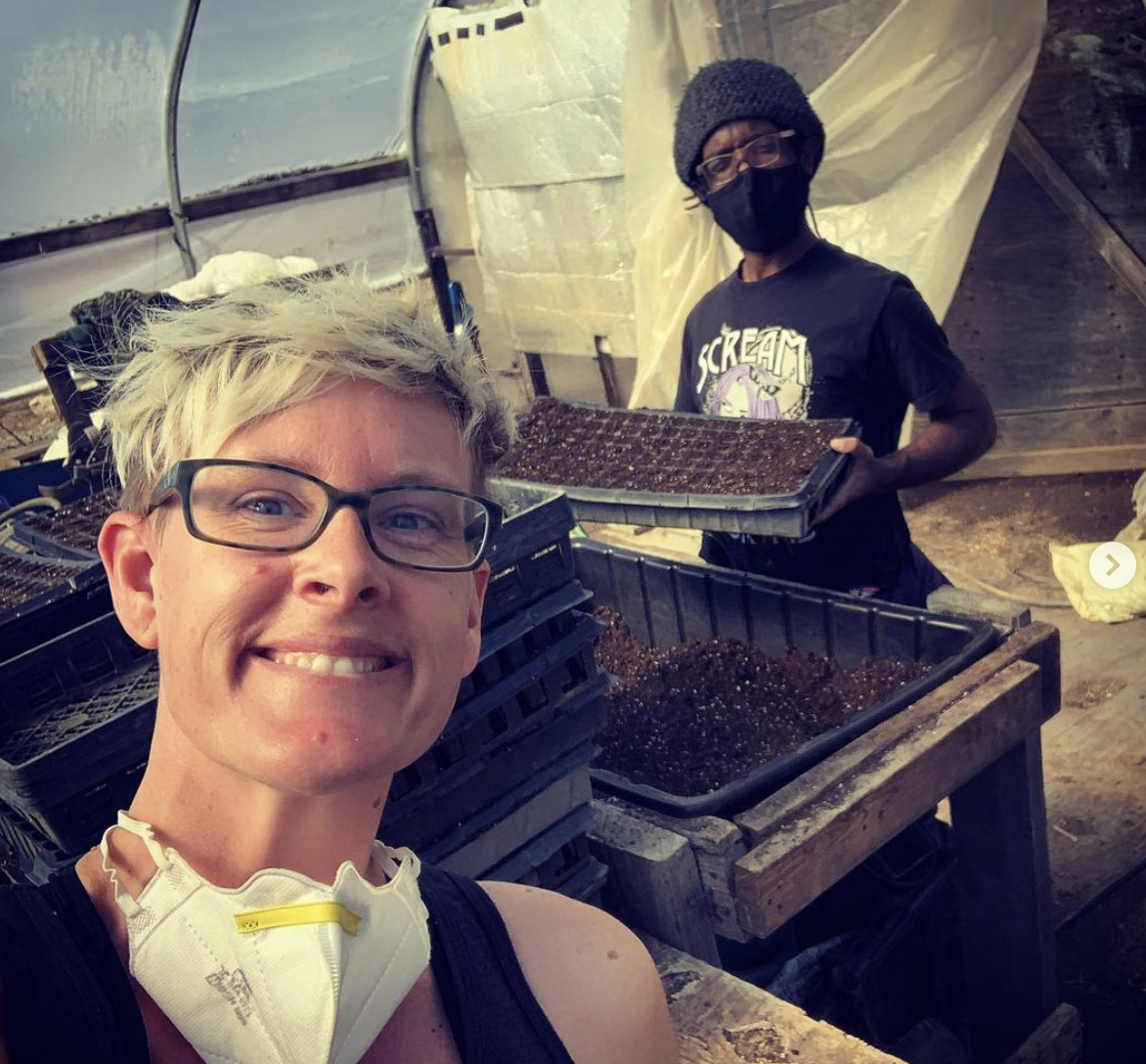Waste Hater: Rock Steady Farm
Waste Hater is a monthly series where we interview friends in the industry doing interesting and awesome work to reduce all kinds of waste, food or otherwise. This June, to celebrate Pride Month, we spoke with Maggie Cheney, the co-founder and GM of Rock Steady Farm in New York.
Fresh-to-def and rockin’ till the break of dawn, the multi-faceted, innovative farmers at Rock Steady Farm know what’s up.
Formed in 2015, the establishment is a queer-owned and operated cooperative farm in New York’s Hudson Valley, where an array of skilled farmers have come together to grow vegetables, increase food access, and change the system. On 12 rolling acres about two hours from the city, farmers plant 65 crops throughout the year, adhering to holistic, sustainable practices.
Through advocacy and educational campaigns, they’ve also created a safe and equitable space for queer and BIPOC farmers to sow their roots into the land.
“Queer communities are very similar to BIPOC communities in that there’s more density of queer people in cities,” Maggie Cheney, GM and co-founder tells Replate. “If you grew up queer in a rural space, there’s more discrimination, a lack of social services and community centers and few people like you. Particularly, if you grew up in a conservative area, you may have been rejected by your family for political or religious reasons. Many leave and don’t come back.”
They add, “Many queer people don’t have a relationship to the land and nature or the opportunity for doing more rural-based work. For generations of queers, that’s been happening.”
Cheney experienced this firsthand, growing up queer and nonbinary, but also really into farming. They recall facing death threats on a farm when they were protesting at a young age, and feel such fear and threats still exist today.
To counter this divide, Cheney and co-founder D Rooney began to conceptualize a farm where anyone, but particularly those who’ve been marginalized, could work and live freely. They started with another project called Rise & Root Farm, also a queer-owned cooperative in New York, and subsequently jumped on a second opportunity to bring Rock Steady to life.
In a few years, Cheney and Rooney established a prospering initiative grounded in environmental and social justice.
“By our sixth year, it became clearer and clearer that we should make this exclusively an LGBTQ farm,” Cheney says. “We’ve found a safe enough place in a rural community to be out and we’ve seen the interest and outreach from other farmers seeking us to broaden the work we do.”
Rocky Steady operates as a 500-member sliding scale Community Supported Agriculture (CSA) initiative, and offers wholesale produce to select restaurants, food pantries and organizations in the area. Members pay what they can for weekly deliveries, which Cheney believes is one of the most sustainable and replicable elements of their business model. The farm fundraises and has a fiscal sponsor to subsidize those shares, and partners with organizations directly tied to the community to make sure food gets to the right people.
“We serve housing projects for formerly incarcerated folks, and food pantries,” Cheney says. “We also have a regional food access fund which supports food sovereignty. It’s basically a pool of funding that gives queer and BIPOC farmers access to feed their communities. We believe this is economically viable, and we want to avoid those situations where you just have white people dropping food off in communities they are disconnected with…We want to allow those who’ve been marginalized to support their own communities.”
As Cheney points out, there’s a clear intersection between social justice and racial justice work in terms of farming, and a way to dive deeper into the country’s systemic problems. From slavery and sharecropping practices to abuse of immigrant workers, both queer and BIPOC communities have faced centuries of pain and mistreatment on American lands.
To repair this relationship, Rock Steady Farm works daily to build a space for healing and acceptance, through educational work, events, and comprehensive infrastructure.
“Agriculture is a really painful place for a lot of people of color, there is a historic weight they carry,” Cheney observes. “Even in school, in some textbooks, the only place where you see images of people of color is on farms as slaves and that is literally cemented in people’s brains.”
Rock Steady also embraces sustainable measures to maintain the land and counter waste. They don’t use chemical sprays, pesticides, herbicides, or GMOs, and plant a diversity of crops meant to replenish the soil and ecosystem. With what little waste amounts, farmers compost on-site or distribute edible sources to local organizations.
Additionally, the farm operates on a solar grid and anyone who joins the community can connect to their source.
“Sustainable is long term, like the way indigenous cultures have done throughout human histories, preserving and protecting the land,” Cheney notes. “We’re completely saturated with white supremacist techniques in agriculture and we have to un-learn that and do different approaches and be creative. It’s a huge challenge, but I love that about farming.”
For more info on Rock Stead Farm, visit their website.








